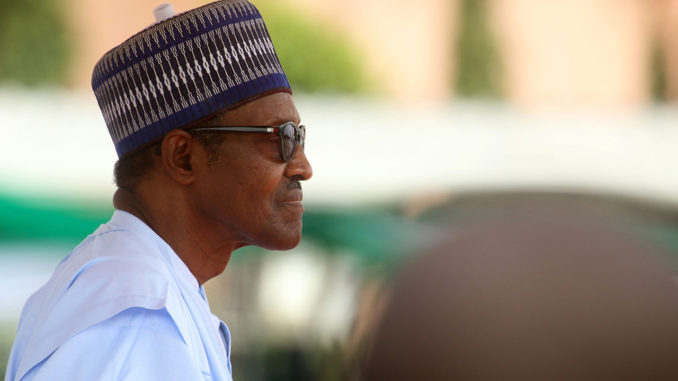
It is no longer news that Nigeria’s debit profile has skyrocketed to 25 trillion Naira in the recent time. This does not include President Buhari’s $29.96 billion external borrowing agenda sent to the National Assembly on the 28th November, 2019, which the president claims to encapsulate catalysts for the nation’s development and antidotes to the multidimensional poverty in the country.
According to the President, the reason for the plan is to address issues that the current earnings from the cruel oil can not address. Such issues as explained by him, are dilapidated infrastructure, fragile health care system, unemployment, a drastic dip in the standard of education across the country among others.
Looking at this explanation, the external borrowing plan seems to give hope for a better Nigeria by focusing on the critical areas which have made Nigeria a laughing stock in the comity of nations. But at the same time, it also raises questions on how the money borrowed between 2015 and 2018 were spent.
Before the present administration, the nation’s debt profile was 12 trillion Naira. But in 2016, the administration decided to embark on a borrowing trip which put the nation’s total debit profile at 25 trillion Naira today.
From 2016 to the first quarter of 2019 for instance, Nigeria has borrowed 12 trillion Naira all in the name of accelerating the nation’s development.
However, despite all these borrowings the country still continues to run at a speed lower than that expected from the change mantra.
Though, the reason for the disparity in the money spent and the projects on ground still remains a puzzle, but at the same time it can not be unconnected with the epidemic corruption in the land.
Corruption is a canker-worm that has eaten deep into the fabric of Nigerian development. It is one of the reasons the country has continued to shop for loans instead of showcasing her produces at the International market.
The effect of corruption and the quest to eradicate it prompted Nigerians to vote for a change in 2015.
However, the recent escalation in the nation’s debt profile and multidimensional poverty in the country indicates that corruption still waxing strong in the country.
In fact, it calls to question the war against corruption and application of the money recovered from the locusts and caterpillars feeding on the nation’s wealth.
The gimmicks of this syndrome which have made the country looks much like a state of “the more you look the less you see” have continued to generate serious questions on the external borrowing plan sent to the National Assembly by the president. Particularly, putting into consideration the stand-by parasites and economic scavengers awaiting for any opportunity to milk the nation’s wealth.
As a matter of fact, there is nothing bad in borrowing so far it is going to be used to spur development and reduce suffering in the land. But, it becomes a matter of concern when there is a great disequilibrium between the nation’s debt profile and her development.
In Nigeria, the more the debit profile increases the more people clamour for better living, good roads, electricity and others things which were used as rationale for acquiring such loans.
Just of recent, statistics released by the world poverty clock show that the number of people living in an extreme poverty has jumped to 97 millions. Also, the data released by the National Bureau Statistics in the 3rd quarter of 2018 shows that the number of unemployed youths in Nigeria has drastically increased to 23 percent.
The same thing is applicable to the education sector. Most leading universities in 2014 are now at the back today due to poor funding. Also, in the area of power there seems to be a missing link between the money spent and power supply.
The story is not different in the heath sector in spite of the numerous policies formulated to revive it. Though, there is a saying that ‘Rome was not built in a day’. But there is also a saying that you cannot build something on nothing.
Therefore, it is obvious that the nation needs an extra effort to move away from the present mess of unemployment, poverty, epileptic power supply, dilapidated infrastructure, and other issues that have made Nigeria a laughing stock in the comity of nations to a land of fulfillment where the needs and aspirations of Nigerians are met.
It is also imperative for the President to move a step forward by setting up a strong monitoring team, in semblance of the Economic and Financial Crimes Commission (EFCC) to seriously monitor the implementation of the projects encapsulated in the plan when eventually approved by the National Assembly in order to prevent it from being hijacked by the opportunists.
Femi Oluwasanmi wrote in from Ibafo, Ogun State, Nigeria.
END

Be the first to comment